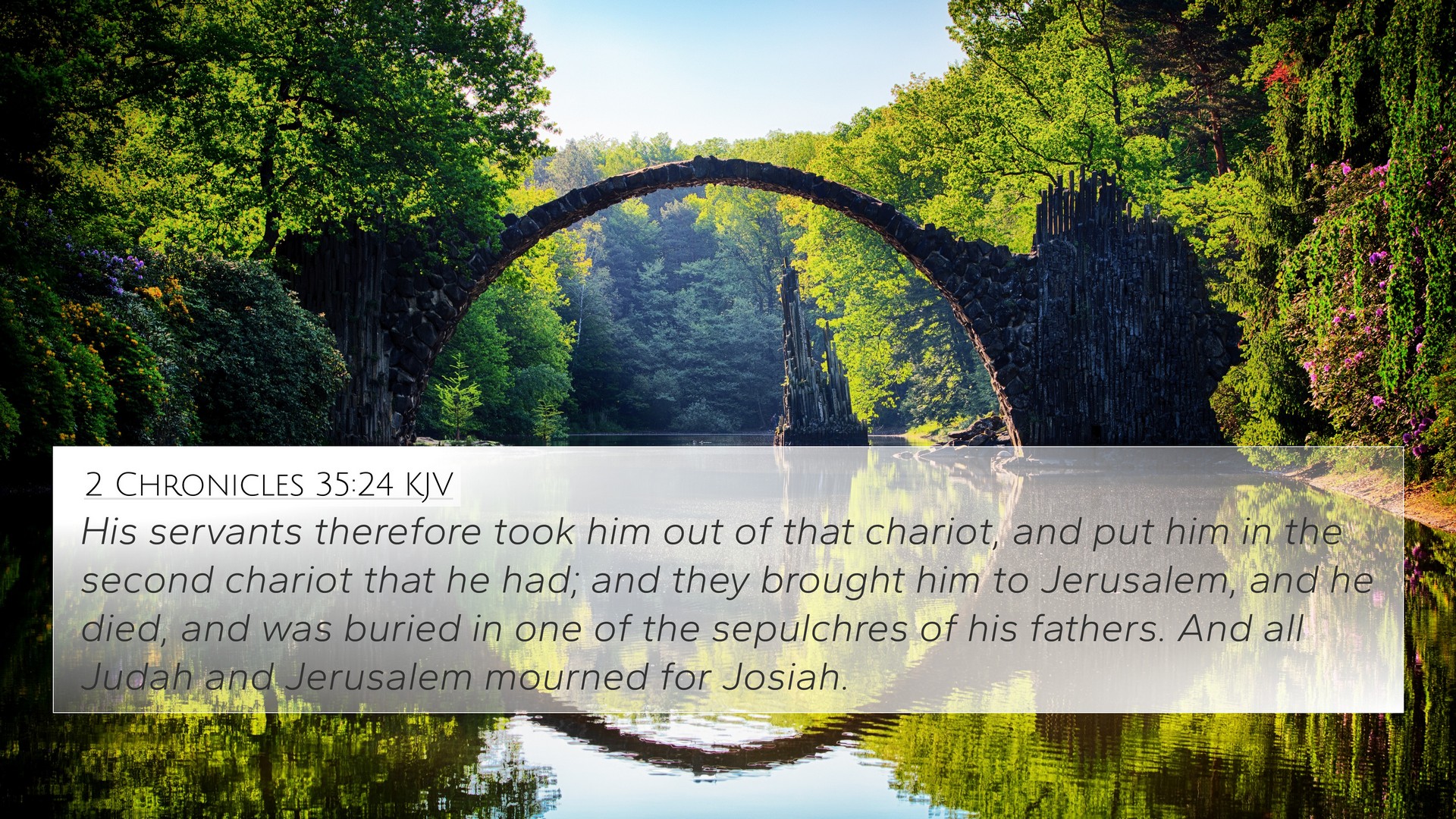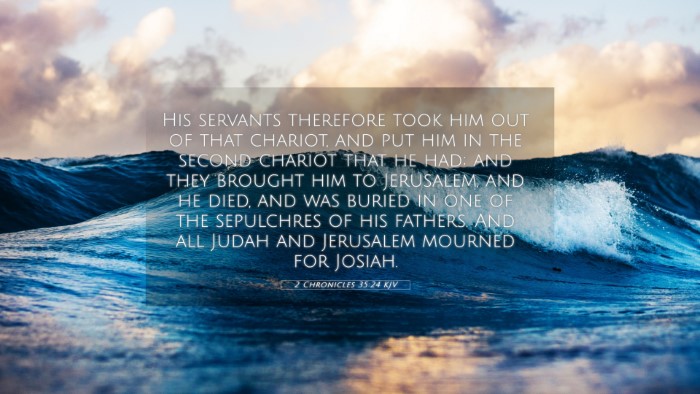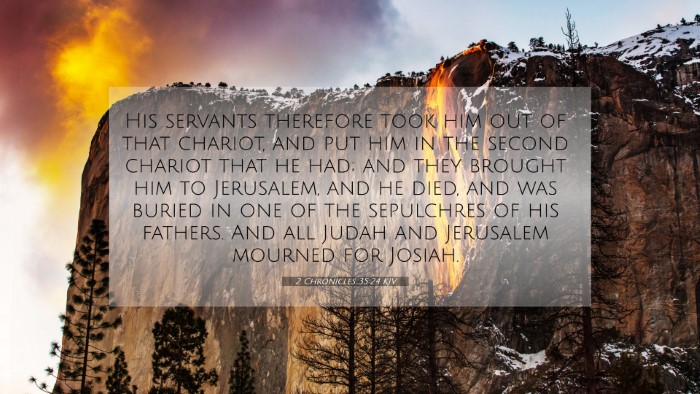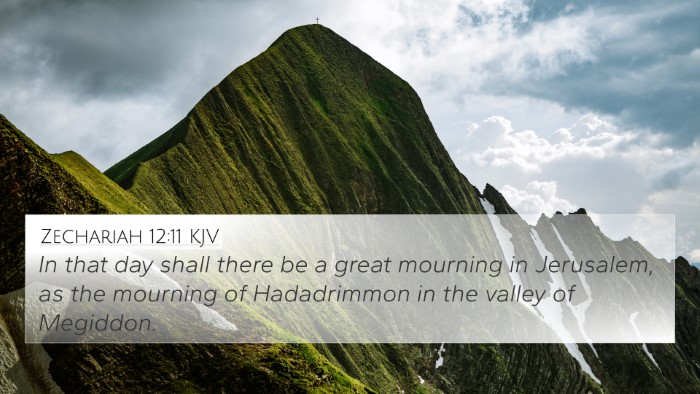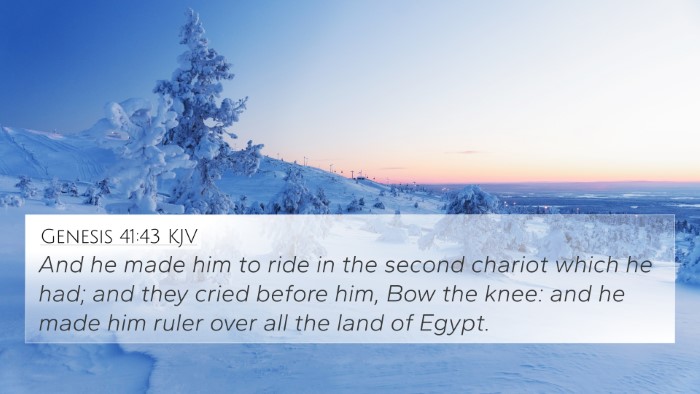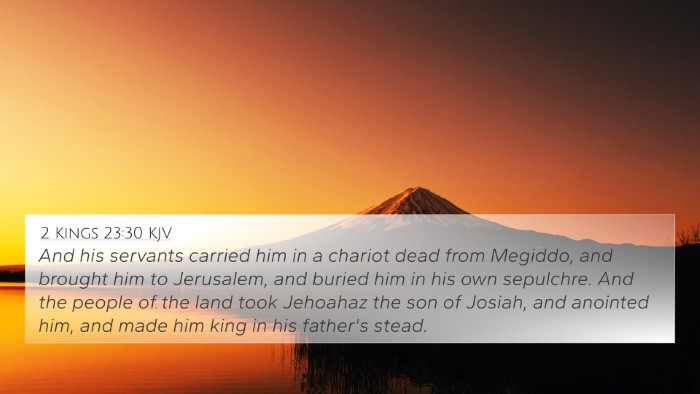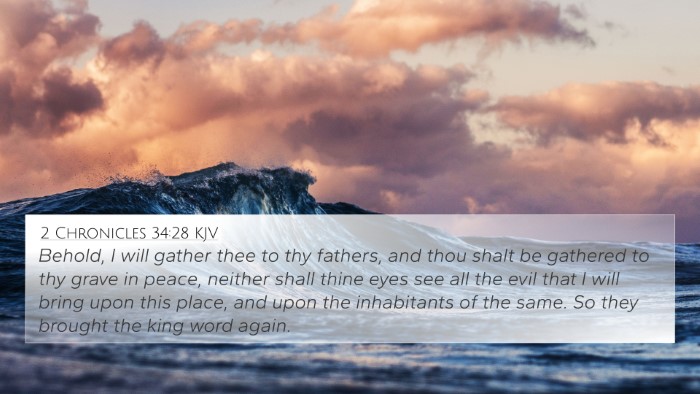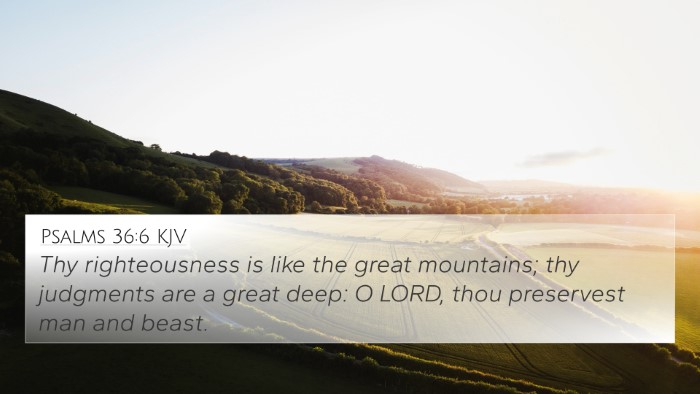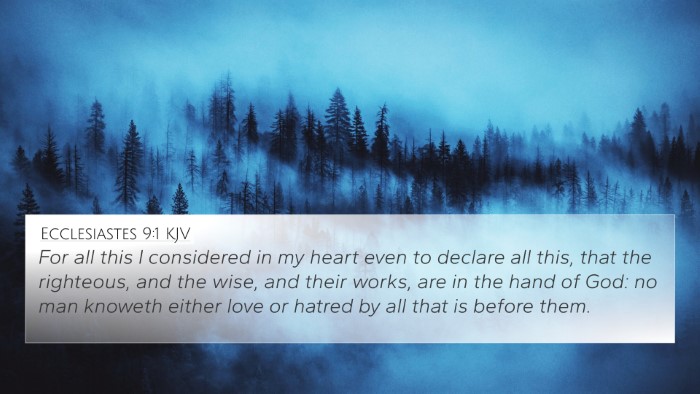Understanding 2 Chronicles 35:24
Verse: 2 Chronicles 35:24 - "But his servants took him away from the chariot, and put him in the second chariot that he had; and they brought him to Jerusalem. And he died, and was buried in one of the sepulchres of his fathers. And all Judah and Jerusalem mourned for Josiah."
Summary of the Verse
This verse describes the death of King Josiah, a significant and revered figure in the history of Judah. Despite his great reforms and dedication to restoring the worship of the Lord, Josiah meets a tragic end in battle. The verse captures the moment when his servants rescue him from the battlefield and bring him back to Jerusalem, where he is mourned deeply by the nation.
Commentary Insights
Matthew Henry's Commentary
Matthew Henry emphasizes the unexpected nature of Josiah's death. Although he had been a righteous king, known for his reforms and dedication to God, he dies in battle after disregarding the warnings of God. Henry suggests that this serves as a reminder of the sovereignty of God and His control over life and death. The mourning of Judah is indicative of Josiah’s impact and legacy, portraying him as a beloved leader who brought spiritual renewal to Israel.
Albert Barnes' Commentary
Albert Barnes highlights the significance of Josiah's reign and his efforts to return Judah to adherence to the covenant. He notes the importance of this event as a turning point in Judah’s history. The engagement in battle at Megiddo against Pharaoh Necho was seen as unwise, as it contradicted Josiah’s mission to restore true worship. The deep mourning from the people underscores their collective grief and loss at the death of a king who genuinely sought to please God.
Adam Clarke's Commentary
Adam Clarke discusses the historical context of the events leading to Josiah’s death. He examines how Necho, the Egyptian king, was on his way to assist the Assyrians against the Babylonians, which should not have been Josiah’s concern. Clarke suggests that Josiah acted out of a misguided zeal, leading to his premature end. The description of mourning serves as a testament to Josiah's legacy as a king who not only led reforms but also engaged the people in worship, creating a national identity rooted in faith.
Cross-References
This verse connects with various other Biblical passages that illustrate themes of leadership, mourning, and God’s sovereignty:
- 2 Kings 23:29-30 - Details the death of Josiah and the aftermath.
- Jeremiah 22:18-19 - Speaks about the mourning for the king who did not reign in righteousness.
- 2 Chronicles 34:33 - Describes Josiah's reforms and their effects on Judah's worship.
- Deuteronomy 17:14-20 - Outlines the expectations and duties of a king in Israel.
- 2 Chronicles 36:1-2 - Discusses the succession of kings after Josiah.
- Ezekiel 19:4 - Uses the imagery of lions and mourning, paralleling Judah’s grief over Josiah.
- Luke 19:41-44 - Refers to Jesus weeping over Jerusalem, reflecting the collective mourning of lost leaders.
Thematic Connections
From our analysis, we can observe thematic connections that deepen the understanding of the verse:
- Leadership and Responsibility - Josiah’s actions, while well-intentioned, lead to tragic consequences, underscoring the weight of leadership.
- God’s Sovereignty - The narrative illustrates God’s control over human affairs, including the lives of kings.
- National Mourning - The collective grief of the people reflects the strong bond between the king and his nation, showing the emotional impact of leadership.
Conclusion
This verse from 2 Chronicles serves as a poignant reminder of the complexities of leadership and the sometimes tragic outcomes that follow human endeavors to fulfill divine purposes. Through the combined insights of public domain commentaries, we grasp a wider perspective on this momentous event in Biblical history, illustrating how sorrow and zeal intertwine in the narratives of the faithful.
Further Study Opportunities
For those interested in further exploration, this verse encourages a deeper engagement with cross-referencing Biblical texts. Utilizing tools for Bible cross-referencing, readers can delve into the connections between Old and New Testament themes, explore the role of prophetic voices in relation to Josiah, and analyze the implications of leadership failures throughout scripture.
By studying these intersections, one can gain a richer understanding of the messages woven throughout the Bible. Whether preparing sermons, conducting personal studies, or engaging in communal discussions, the exploration of cross-referenced themes provides valuable insights into the character of God and the narrative of His people.
